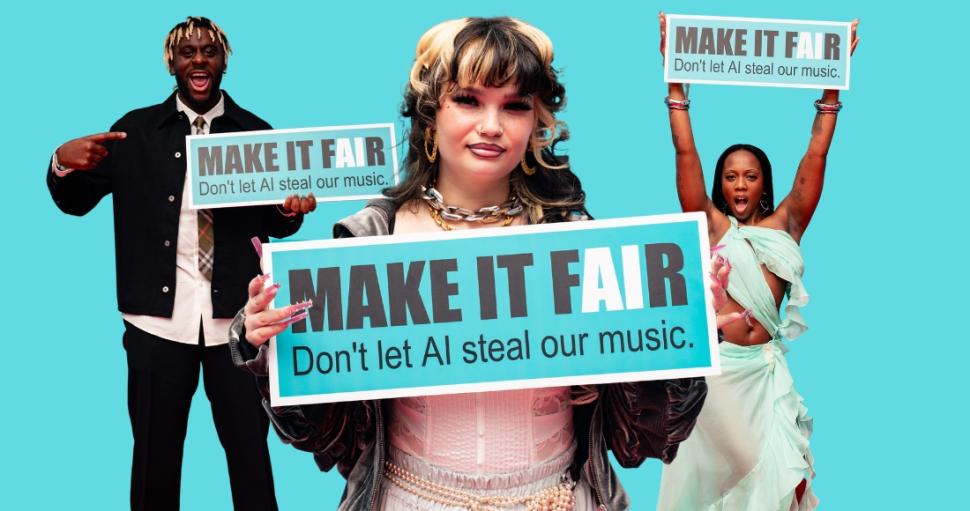UK Listeners Call for Greater Transparency and Restrictions on AI-Generated Music
As technology evolves, the debate surrounding AI-generated music is heating up. A recent survey reveals a compelling sentiment among UK listeners: the majority advocate for greater transparency and restrictions regarding the use of AI in music creation. This shift raises critical questions about the future of creativity and copyright in the music industry, and the implications it holds for artists and fans alike.
The Voice of the People: Human Creativity is Irreplaceable
In a poll conducted by the BPI, which surveyed 1,750 consumers, the findings were startling. A resounding 82.7% affirmed that human creativity is essential in music production, with 80.1% placing a higher value on music crafted by human hands versus songs generated by AI.
- Creative Authenticity: Listeners crave the authenticity that only human artists can provide. This sentiment reflects a broader cultural appreciation for the emotional and cultural depth that human musicians infuse into their work.
Guardians of Music: Protecting Artists’ Rights
Moreover, the survey brought to light the overwhelming consensus that an artist’s music and vocals should not be used by AI without explicit permission. A whopping 78.5% of respondents agreed with this sentiment. Clearly, the industry must recognize the creators behind the sounds we love.
- The Demand for Transparency: An additional 72.7% of participants believe that AI systems should disclose any music they have ingested for training purposes. The need for transparency is paramount in fostering trust between artists and the technological advancements that are reshaping the landscape.

A Call to Action: Artists Unite Against AI Proposals
The urgency of these concerns is underscored by the recent mobilization of top UK artists, including Myles Smith, Lola Young, FLO, and Rachel Chinouriri, who have joined forces to protest the government’s proposals regarding AI and copyright. These musicians encapsulate the fears of many in the industry: future legislation could potentially allow AI firms to utilize UK music for training without consent.
- The Government’s Stance: Current proposals suggest an opt-out options for artists and creators, yet previous experiences across different markets reveal that such measures are frequently unworkable, leaving artists vulnerable to misuse of their work.
Campaigns for Change: A Stronger Copyright Framework
The challenges posed by AI aren’t going unnoticed. The BPI’s “Don’t Let AI Steal Our Music” campaign, which debuted at the BRIT Awards in March, aims to spotlight these issues. This campaign follows on the heels of the Make It Fair initiative, demonstrating a unified stand against potential legislative changes that compromise artist rights.
- Silent Protest: Supporting the cause is the silent album “Is This What We Want?”, featuring contributions from over 1,000 musicians, highlighting the deeply-felt concerns about AI encroachment on creative fields.
For more insight into this pressing issue, visit the campaign’s website: dontletaistealourmusic.com.

A Call for Structural Changes in the Music Industry
As highlighted by Sophie Jones, BPI’s Chief Strategy Officer, the survey results underscore an urgent need for transparency and protection of copyright in the face of formidable challenges posed by big tech. "AI presents myriad opportunities for everyone in the music industry and consumers, but this potential can only be actualized by maintaining a robust copyright framework," she emphasizes.
- The Future of Music and AI: To ensure a harmonious coexistence of creativity and innovation, it’s crucial to develop licensing partnerships that empower artists while embracing the technological advancements that AI promises.
As the conversation around AI-generated music continues to evolve, one thing is clear: listeners and artists alike are demanding more respect, more transparency, and more protection in a digital age where creativity should not be compromised. The future of music may very well depend on how we choose to navigate these uncharted waters.






